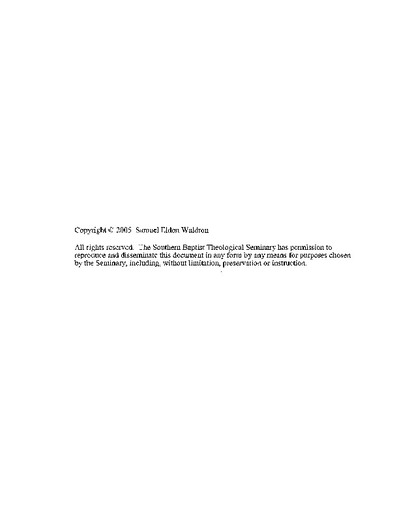| dc.description.abstract | The thesis of this study is that influential evangelicals have adopted views regarding the relation of faith, obedience, and justification (or, in other words, justification sola fide ) that are in conflict with the historic, Reformation doctrine of justification sola fide . Having departed from the historic, Reformation doctrine, their professions of holding justification sola fide are misleading and meaningless for the purpose of certifying their evangelical identity.
To establish the unity of the Protestant tradition with regard to the meaning of sola fide , the views of Martin Luther, John Calvin, and the major Protestant creeds and confessions are examined.
The thesis that unity existed among Protestants with regard to sola fide requires the examination of the development of the doctrine in Luther found in chapter 2. It shows that Luther's views gradually developed in his spiritual experience and that the major features of his mature understanding of sola fide are consistent with Calvin's systematic development of sola fide .
In chapter 3 the views of John Calvin are examined. Three key perspectives on the meaning of sola fide through which the Reformation tradition can be examined and the views of current evangelicals tested are isolated: the passive definition of justifying faith, the distinction between justifying faith and obedience, and the dichotomy between the law and the gospel.
Chapter 4 examines the Reformation tradition. An accurate assessment of the meaning of sola fide for that tradition may be best achieved by the examination of its a major creeds and confessions. The three key perspectives on the meaning of justification by faith alone previously isolated are found consistently embedded in the 16 th and 17 th century creeds of Protestantism.
Having seen the unified meaning of justification sola fide in Calvin, Luther, and the Protestant tradition, chapters 5, 6, and 7 examine the views of three influential evangelical theologians in light of this crucial tradition. The views of Daniel Fuller, Norman Shepherd, and Don Garlington are weighed in the balance of the historic Reformation doctrine of justification by faith alone and found to depart from the historic doctrine. Chapter 8 seeks to make clear a number of important conclusions from the study as a whole. | en_US |

